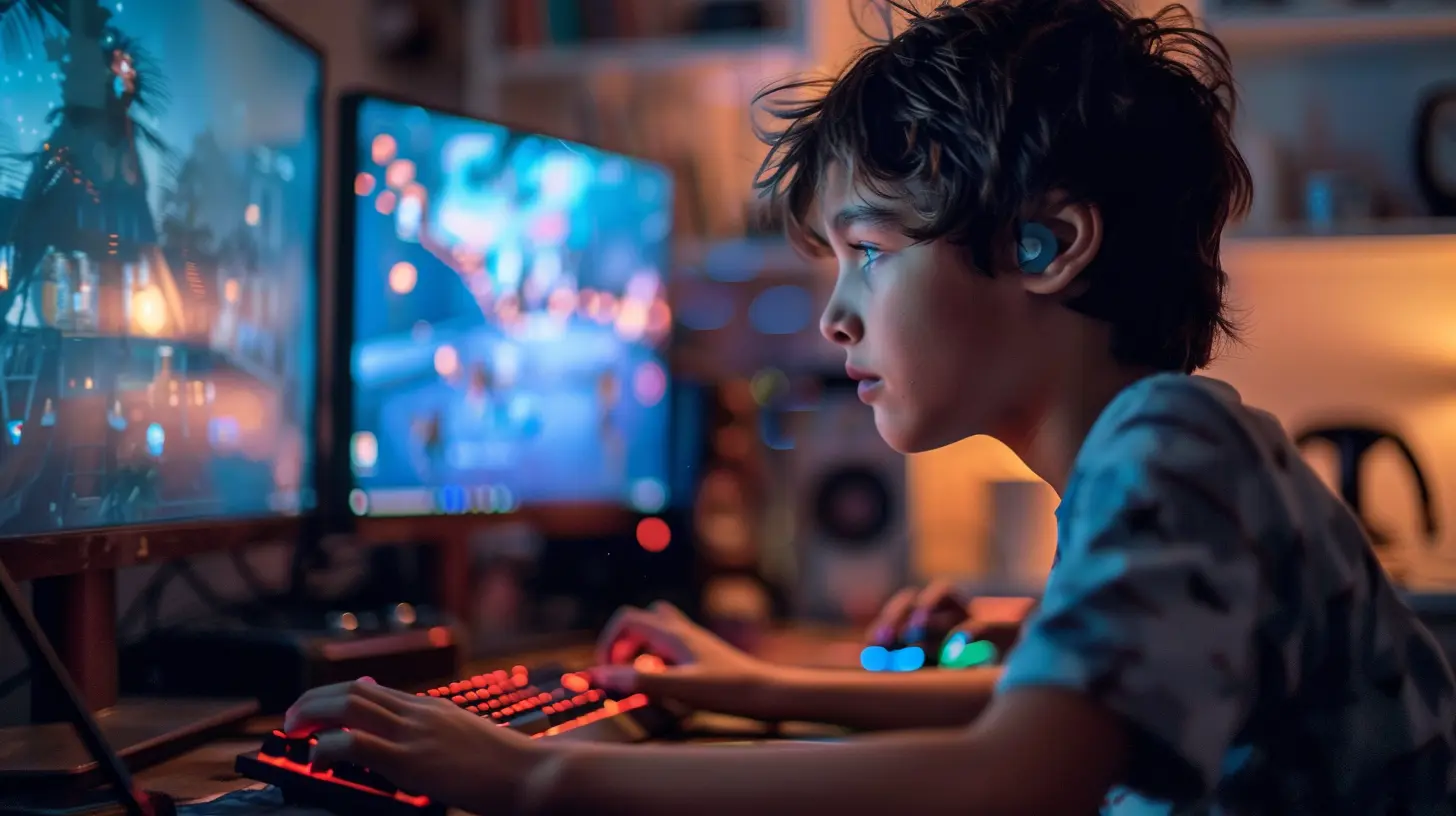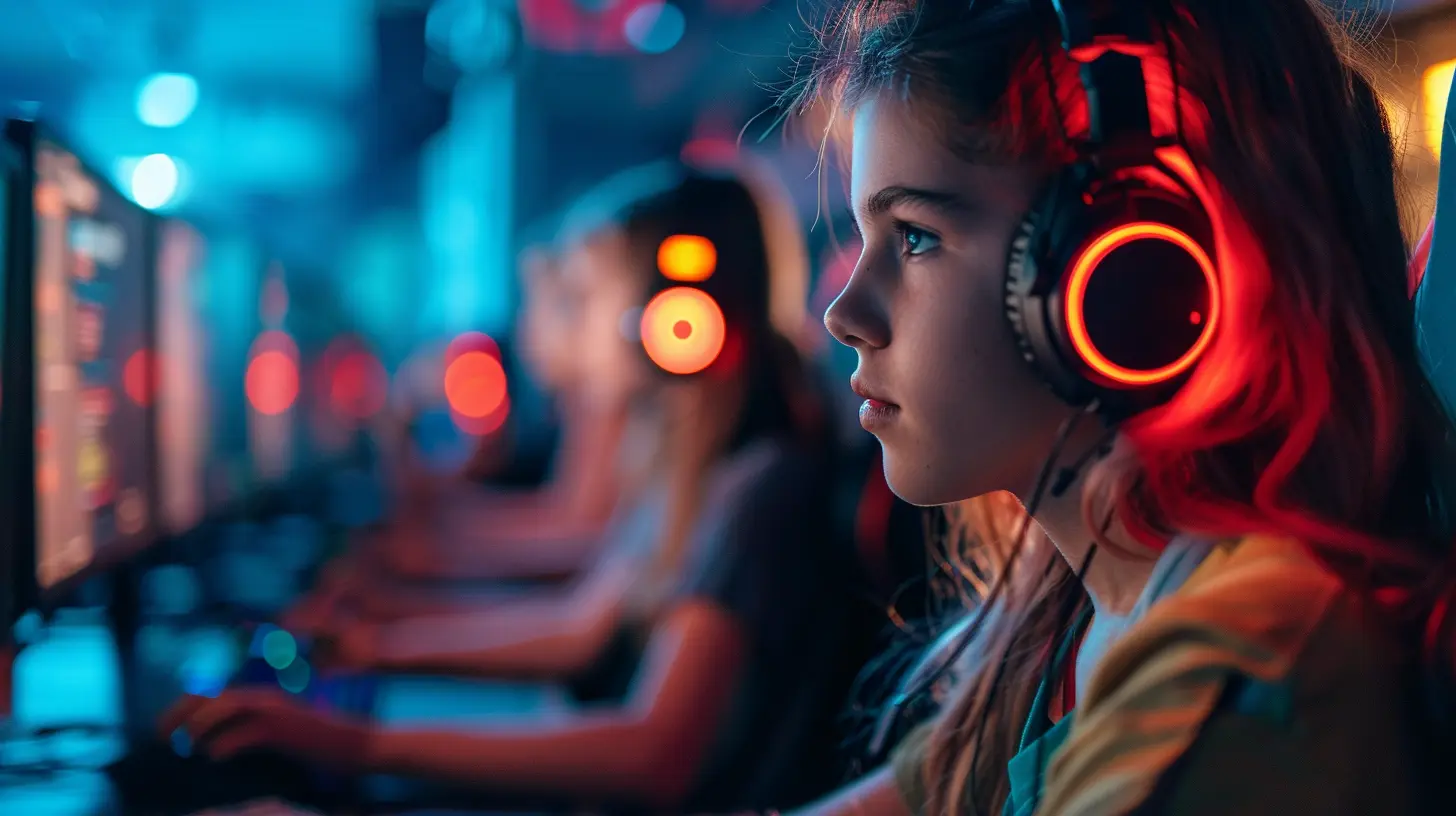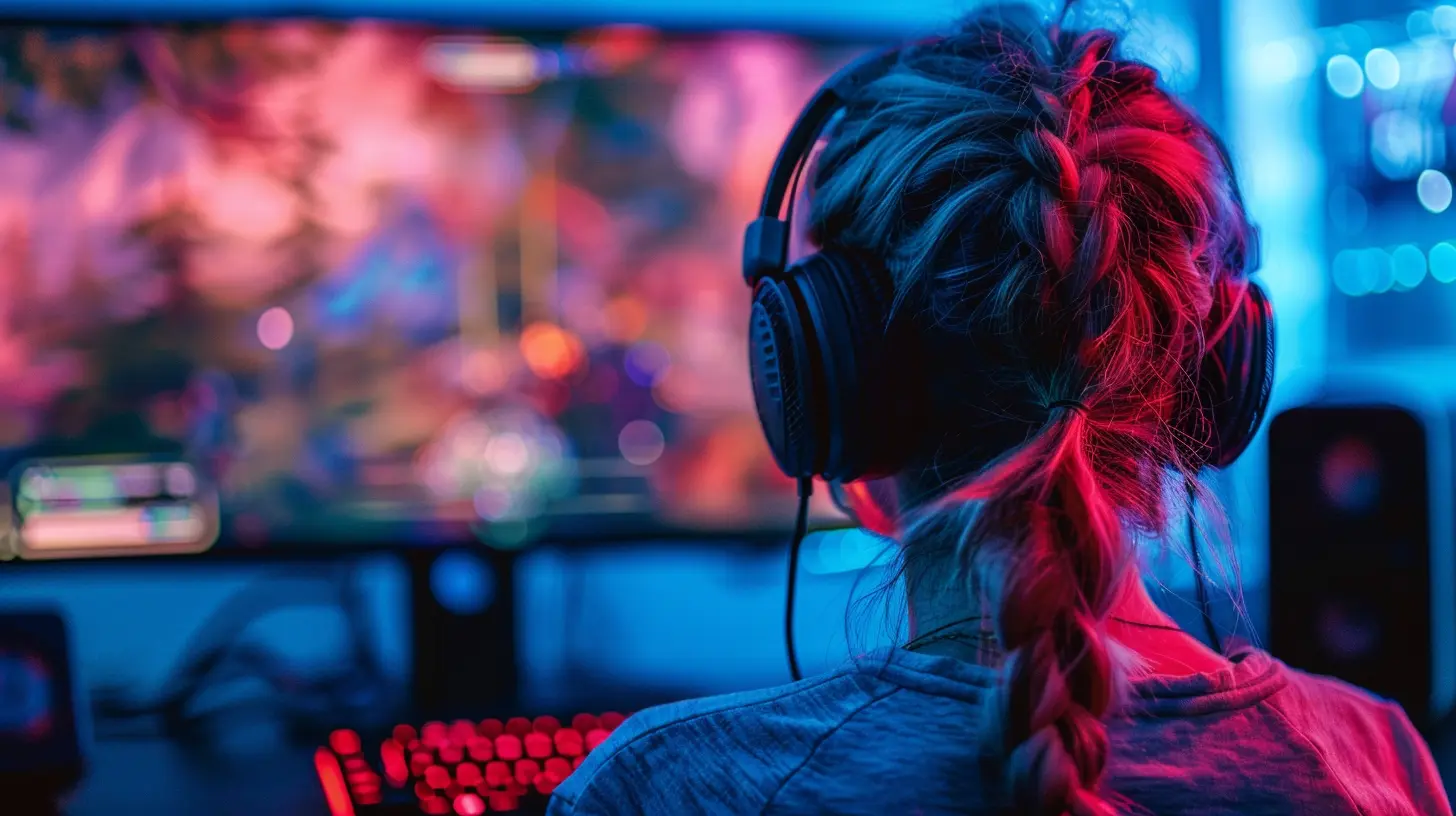How Online Games Are Teaching Real-World Skills
1 August 2025
When most people think about online games, they usually picture teenagers glued to their screens, shouting into headsets, or mashing buttons for hours. Fun? Totally. Educational? Well, that might raise a few eyebrows.
But here's the twist—online games are actually doing more than just entertaining us.
Believe it or not, these digital playgrounds are low-key teaching some pretty valuable real-world skills. And no, we’re not just talking about fast reflexes or quick thumbs. We're talking about leadership, communication, teamwork, decision-making, even financial literacy.
So, let’s dive into how online games are shaping us for the real world—while still having a blast in a virtual one.
Gaming Isn’t Just Child’s Play Anymore
Before we jump into the skill sets, let’s flip the narrative about online gaming for a second. Think about it—millions of people log into games like Fortnite, League of Legends, Minecraft, or even Animal Crossing daily. These aren’t just hobbies anymore; they’re full-blown communities.And just like in the real world, there are rules, strategies, goals, and challenges. You’re dealing with people, solving problems, figuring out the best way to win. It’s basically life with a digital costume on.
1. Teamwork That Rivals Office Projects
Ever tried winning a match in Apex Legends or Overwatch by going solo? Good luck. Most online multiplayer games need you to work with a team. You’ve got roles, responsibilities, and those unpredictable moments where everything goes sideways.In these high-stakes moments, players need to:
- Communicate clearly (or risk total chaos)
- Understand each other's strengths and weaknesses
- Adapt on the fly
- Work toward a common goal
Sound familiar? That’s pretty much any group project at work or school.
Gamers often learn how to be better team players than some seasoned professionals. That’s not even a stretch—clan leaders and guild managers are essentially project managers in disguise.
2. Communication Like a Pro
Let’s be honest, shouting “HE’S BEHIND YOU!” into a mic might not sound elegant, but it gets the job done. In real-time competitive games, communication is king. Whether you're giving updates, calming down a panicky teammate, or coordinating an ambush, talking clearly and effectively is everything.Gamers pick up on tone, timing, and clarity. And yeah, they also learn how not to tilt (rage) when things go south—which is another soft skill worth gold in the workplace.
Plus, in global games, there's often that bonus of dealing with people from other cultures. That means learning to be respectful, adaptable, and aware of different communication styles. It's cross-cultural communication 101… just with more rocket launchers.
3. Strategic Thinking and Problem Solving
Every game has a goal, and rarely is it served up on a silver platter. You're given tools, obstacles, and maybe a vague idea of what to do—and then it’s up to you to figure it out.Whether it’s cracking a puzzle in The Legend of Zelda or mapping out a strategy in StarCraft II, online games challenge your brain:
- Analyzing situations quickly
- Predicting opponents’ moves
- Managing limited resources
- Planning several steps ahead
In short, they’re like mental gyms, but way more fun.
Some games even simulate real-world scenarios. Think about Civilization or SimCity, where you’re effectively running a country or a city. You’ve got to balance economics, defense, population satisfaction—it’s like being the president without the press conferences.
4. Leadership You Didn’t Know You Had in You
Let’s talk about leadership—yes, that big word we usually hear in boardrooms or TED Talks. Turns out, it’s alive and well in gaming communities.Running a raid in an MMO (massive multiplayer online game) like World of Warcraft isn’t just for kicks. It requires insane levels of planning, time management, and people skills. Someone has to rally the group, assign roles, make decisions mid-battle, and keep everyone motivated—even when the boss wipes the whole group… again.
Stepping up in a digital world can give people the confidence to lead in the real one. And those leadership skills? They transfer, big time.
5. Time Management (Yes, Really)
We’ve all heard that stereotype: gamers waste time. But the truth? To thrive in many games, players have to be masters of time management.Daily quests, cooldowns, timed missions—these elements teach players to prioritize tasks, plan their day, and make the most of limited playtime.
And let’s not forget how games like Animal Crossing or Stardew Valley flow in real-time. You can’t just harvest your crops willy-nilly. You’ve got to plan your day, manage resources, and stay on a schedule.
It’s subtle, but it’s there: online games subtly reward those who use their time wisely.
6. Perseverance and Resilience
You want to know what builds resilience? Failing that impossible boss fight 34 times and STILL going in for the 35th try.Gamers deal with setbacks constantly—and they keep going. Do they rage sometimes? Of course. But at the end of the day, they know it’s about trial, error, learning, and improving.
This mindset, often called a “growth mindset” in psychology-land, is something employers, educators, and coaches LOVE. It's about staying motivated, learning from failure, and pushing through challenges.
So the next time someone says you’re wasting time retrying that level, tell them you're building mental toughness.
7. Creativity and Innovation
Look no further than games like Minecraft, Roblox, or even The Sims. These platforms can be full-blown design studios—letting people build entire cities, worlds, games within games, or create art and music.Gaming encourages out-of-the-box thinking. Players who tinker with mods, code scripts, and design custom levels are dipping their toes into real-world tech and design skills.
And it’s not just about aesthetics. Creative problem-solving is huge in games—what do you do when your usual strategy fails? You improvise, think creatively, and try something wild. Sometimes it fails. Sometimes, it wins big.
8. Financial Literacy and Resource Management
Games like Eve Online or even FIFA Ultimate Team involve serious in-game economies. We're talking supply and demand, investments, trading, budgeting—all wrapped in a digital shell.Players learn:
- How to manage limited resources
- When to spend vs. when to save
- The impact of risk-taking
- Strategic investing of time or currency
Eve Online is even studied by actual economists because of how complex its systems are.
So yeah, your virtual trading skills might just help you budget better IRL.
9. Digital Literacy and Tech Skills
Let’s not ignore the obvious—gaming requires a decent grip on technology, from understanding hardware compatibility to navigating servers, mods, and forums.Gaming exposes people to:
- Interfaces and software navigation
- Online security basics
- Troubleshooting skills
- Installing and configuring apps and hardware
For many people, online games are the gateway to broader digital confidence. As technology becomes more central to daily life, those skills are more important than ever.
10. Social Skills and Confidence
Okay, picture this: a shy teenager logs into a game, joins a guild, chats with new people, and—even if just virtually—steps into a social circle they wouldn't approach in school. That’s powerful.Online games can be a safe, low-pressure environment to:
- Practice social interaction
- Build friendships
- Increase confidence
- Learn empathy (yes, empathy exists in gaming—who knew?)
Sure, not every in-game interaction is a model of good behavior (hello, toxic chat). But overall, gaming teaches people how to navigate social environments, handle conflict, and express themselves.
The Bottom Line: Games Aren’t the Enemy
Look, gaming—like anything—needs balance. Too much of it without boundaries? Not great. But when approached the right way, online games can be more than just “playtime.”They're mini boot camps for real life.
They teach players how to communicate better, think sharper, plan smarter, lead confidently, and bounce back from failure. And the best part? Most people learn these skills without even realizing it—while they’re in the middle of an epic battle or building a fortress from scratch.
So the next time someone brushes off online games as a waste of time, maybe remind them: those virtual wins might just be preparing you for some real-world ones.
Final Thoughts
Online games are quietly becoming one of the best accidental teachers out there. Whether you're raiding dungeons, scoring goals, trading assets, or crafting magical potions—you're learning. Sometimes it’s obvious, sometimes not. But make no mistake: the skills are real.And hey, if you learn leadership and financial management while riding a dragon, that’s just game-based education at its finest.
all images in this post were generated using AI tools
Category:
Online GamesAuthor:

Lucy Ross
Discussion
rate this article
2 comments
Mistral McPhail
Because who needs school?
January 31, 2026 at 4:49 AM
Haze McGhee
Online games have evolved beyond entertainment, becoming valuable tools for developing real-world skills. They foster critical thinking, teamwork, and strategic planning, allowing players to navigate complex scenarios. As we embrace this evolution, we must recognize the potential of gaming as a platform for learning and personal growth in today’s digital age.
August 12, 2025 at 3:35 AM

Lucy Ross
Absolutely! Online games do offer unique opportunities for skill development, enhancing critical thinking and teamwork while preparing players for real-world challenges.


